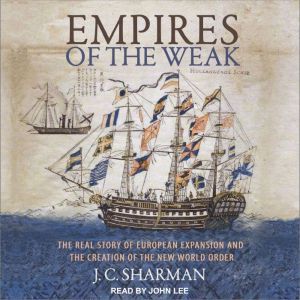

Empires of the Weak
The Real Story of European Expansion and the Creation of the New World
Author: J.C. Sharman
Narrator: John Lee
Unabridged: 6 hr 26 min
Format: Digital Audiobook Download
Publisher: Tantor Media
Published: 05/14/2019
Categories: Nonfiction, Business & Economics, History, European History, World History
Synopsis
Europeans were overawed by the mighty Eastern empires of the day, which pioneered key military innovations and were the greatest early modern conquerors. Against the view that the Europeans won for all time, Sharman contends that the imperialism of the late nineteenth and early twentieth centuries was a relatively transient and anomalous development in world politics that concluded with Western losses in various insurgencies. If the twenty-first century is to be dominated by non-Western powers like China, this represents a return to the norm for the modern era.


